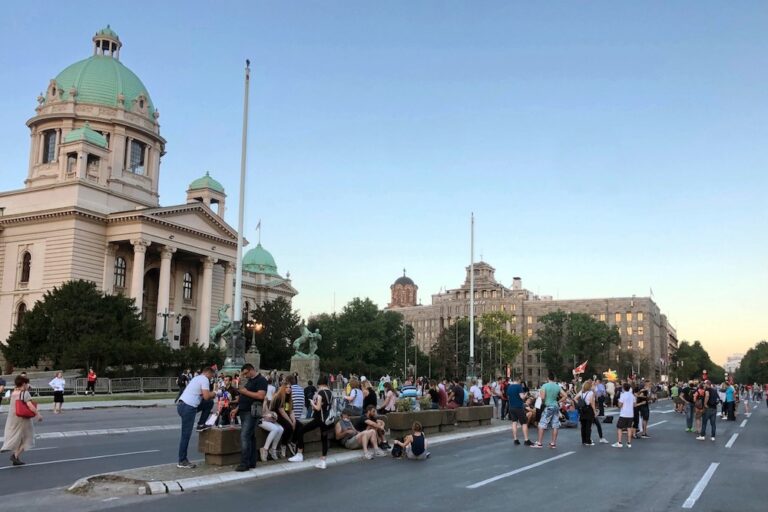The following is a 6 April 2000 WAN press release: Press Groups Protest Newsprint Restrictions in Yugoslavia The World Association of Newspapers and the World Editors Forum have protested against a new threat to the independent press in Yugoslavia: a shortage of paper. In a letter to Information Minister Goran Matic, the Paris-based WAN and […]
The following is a 6 April 2000 WAN press release:
Press Groups Protest Newsprint Restrictions in Yugoslavia
The World Association of Newspapers and the World Editors Forum have protested against a new threat to the independent press in Yugoslavia: a shortage of paper.
In a letter to Information Minister Goran Matic, the Paris-based WAN and the WEF called on the government to remove import restrictions on newsprint, the supply of which is tightly controlled by the government.
The newsprint shortage could pose “a genuine threat to the continued existence of the independent print media,” said the letter, signed by WAN President Bengt Braun and WEF President Ruth De Aquino.
Newsprint cannot be imported without a license from the Yugoslav Foreign Trade Ministry, which has consistently denied import licenses to independent publishers, though granting them to selected trading companies. The restrictions have resulted in significant increases in the price of imported paper.
At the same time, Yugoslavia’s only newsprint manufacturer, Matroz, suspended production on 25 March, citing a shortage of raw materials. According to reports, deliveries were halted because of payment difficulties, though production was expected to resume this month.
WAN and the WEF called on the government to ensure that normal newsprint imports resume immediately, and that all import restrictions are removed.
In the meantime, WAN is helping to rush emergency supplies to independent publications.
In recent weeks, the regime of Slobodan Milosevic has intensified its campaign against the independent press. Private newspapers in Serbia are being forced by the government to cut cover prices by 25 percent and thus to operate at a loss; newspapers are sued almost daily under the
notorious Public Information Act which imposes fines for “insults” and “lies.”
Independent newspapers are also subject to a 30 percent surcharge for using a state-affiliated printer which, in at least one case, has made unauthorized changes to the content.
In response to this crackdown, WAN is participating in a new campaign for the defence of independent media in Serbia.
The campaign, initiated by WAN and the International Federation of Journalists, together with their members in Serbia, also involves the International Press Institute, Article 19, Press Now, the Soros Foundation, and the Committee to Protect Journalists. Among other measures they have taken, WAN and its partners have created a media assistance fund to purchase newsprint for use by independent newspapers.
The Paris-based WAN defends and promotes press freedom world-wide. It represents 17,000 newspapers; its membership includes 63 national newspaper associations, individual newspaper executives in 93 countries, 17 news agencies and seven regional and world-wide press groups.
The WEF is the branch of WAN that represents senior newsroom personnel.


